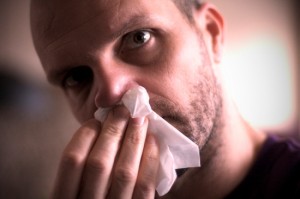How to Deal with Suboxone Withdrawal
Suboxone is a prescription medication that contains both buprenorphine
and naloxone. Both of these drugs are often given to addicts recovering from opiate addiction. Suboxone helps addicts overcome any drug cravings, thereby assisting them in the recovery process. Doctors should slowly taper the dosage of suboxone until you no longer need it to cope with the consequences of drug addiction.
The buprenorphine found in Suboxone is similar to what is found in other opiates, like morphine and heroin. As an opiate, buprenorphine can cause your body to become physically dependent on the drug, so when you suddenly discontinue suboxone, it will cause your body to undergo withdrawal. Withdrawal is your body’s way of attempting to recover from excessive drug use. Suboxone withdrawal can range from mild symptoms to serious, possible life-threatening effects.
Signs and symptoms of withdrawal:
- Uncharacteristic irritability or agitation
- Anxiety
- Difficulty sleeping
- Profuse sweating
- Excessive tears
- Runny nose
- Frequent yawning
However, these symptoms are usually overlooked and may be passed off as symptoms of the flu or other mild diseases.
How to deal with Suboxone Withdrawal
I don’t know. Coffee, ibuprofen, lots of water, natural sleeps aids such as melatonin, hot baths, massage?
As a recovering opiate addict, I tried both a methadone maintenance and suboxone (at different times in my addiction). And quite honestly, the withdrawal sucks. That is totally an understatement.
Some years ago, I kicked methadone. Cold turkey. Not recommended. I stayed away from opiates for a little while but, soon enough, I was back at it. I thought the pain and discomfort of kicking for over a month would be enough to keep me from going down that road again. So, when things got bad again, I decided to get on suboxone. I don’t deny that this can be helpful when detoxing from other opiates (yes other because, after all, suboxone does contain an opiate called buprenorphine). But it is meant to be used short term, as in a week at the most, and with a rapid taper. There will be some discomfort at the end, but nowhere near what it’s like to go cold turkey.
While I was researching suboxone for the purpose of writing this blog and time and time again, I kept finding “information” which stated that, if tapered off of suboxone, you won’t experience any withdrawal symptoms and that if you do, you only think you do; it’s all mental. That’s plain old bullshit. I was on a very low dose of suboxone when I decided to go to treatment. I was taking maybe 4mg a day for the last several months of my active addiction. I tried to taper myself completely but the withdrawals came, and with a vengeance. I could not face suboxone withdrawal again. My solution was going into a medical detox and inpatient program.
If you are facing suboxone withdrawal, you may want to consider doing what I did. There are programs that specialize in suboxone detox that can assist you in the process with very little discomfort.



